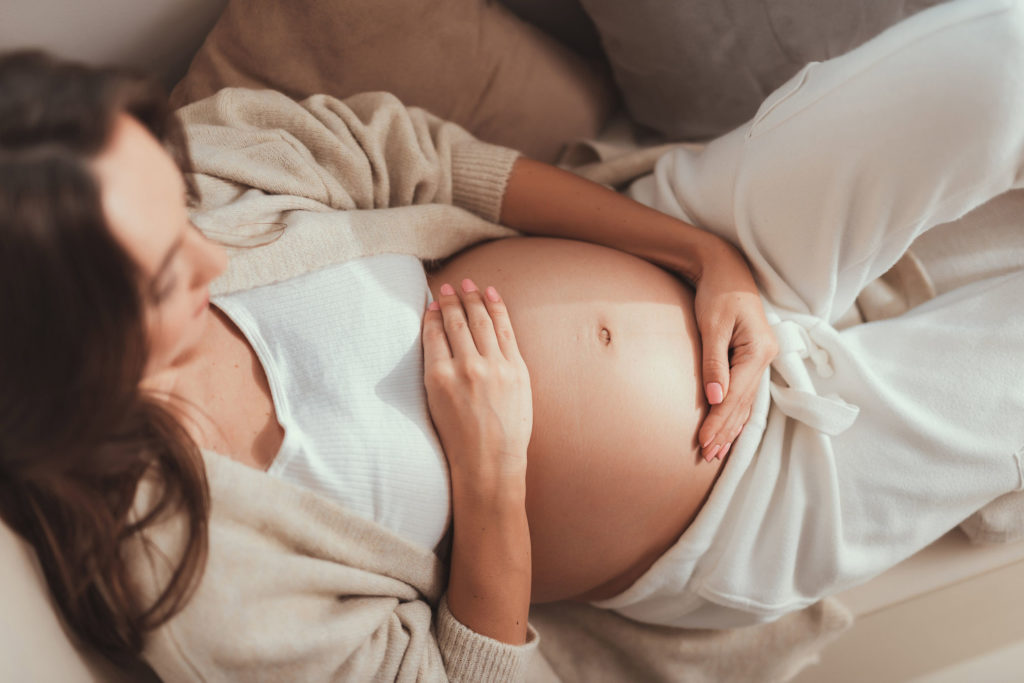How hard is it to get pregnant? You’d think it would be super easy, seeing as all mammals, including us human beings, are pretty much hardwired to procreate. Yet some couples can wait for years before getting pregnant.
The first and most important thing to say is that it’s different for everyone. There’s a range of factors involved plus a little bit of luck, so don’t panic if you’re trying and don’t immediately get pregnant! We’ve pulled together some of the most commonly asked questions about pregnancy and getting pregnant, so the next time someone asks, “How long does it take to get pregnant?”, you’ll be the one with all the answers.
Getting Pregnant: The Basics

The first step to getting pregnant is obviously having sex, so the more sex you’re having, the more chance you have of getting pregnant. That’s the fun part. Are there sexual positions that are better for getting pregnant? No, not really – the key is to have sex regularly (every 2-3 days) and make sure you’re both enjoying the sex rather than seeing it as a baby-making chore!
Getting pregnant relies on the following steps occurring:
- During sex, the sperm enters the vagina.
- The sperm travels up the vagina, through the cervix, and into the uterus.
- From here, sperm travel into the fallopian tube.
- If ovulating, an egg will be present, and the sperm will attempt to fertilize the egg.
- Only a single sperm cell is required to fertilize the egg.
- If the egg is successfully fertilized, it travels to the uterus and attaches itself to the lining, where it will begin to grow.
Sounds simple enough, but there are a ton of factors that can stop fertilization from occurring. If ovulation isn’t occurring, there’s no egg there to be fertilized. Sometimes sperm simply don’t make it all the way to the fallopian tubes. Other factors that affect pregnancy include:
- Age
- Overall health and wellbeing
- Fertility or any fertility issues
- Obesity
- Alcohol, drugs, and smoking
Studies have shown correlations between smoking and damaged or unhealthy sperm cells, plus smoking can also lead to erectile problems– not great when you want to get pregnant!
In general, the healthier you are, the more likely you are to get pregnant. However, if you have long term health conditions, such as asthma or diabetes, you may want to talk to a doctor about how that could affect your or your partner’s chances of getting pregnant.
When Does Conception Occur?
How long does it take for the sperm to reach the egg? How long does it take for a sperm to fertilize an egg? How long does implantation take? These are some of the most commonly misunderstood points about getting pregnant, and the answer is longer than you might think.
So, how long does it take to get pregnant after sex? If this was “the one,” then you could be looking at another 10 days after sex before implantation: the moment when the fertilized egg successfully implants itself in the womb wall.
How Long Does It Take to Know If You Are Pregnant?
The general recommendation is to wait until a period has been missed before taking a pregnancy test. This helps avoid any false negative tests. Home pregnancy tests are usually accurate, and it’s extremely rare to get a false positive.
Getting Pregnant FAQs
These are just a few of the questions that come up time and again from young couples thinking about starting a family.
What are the chances of getting pregnant when not ovulating?
If you have sex when there is no chance of an egg being present, you won’t get pregnant. Simple. However, as it can take a few days for sperm to make their way to the fallopian tubes, having sex a few days before ovulation could actually help you get pregnant faster.
What Age Are Men Most Fertile?
This is different in every man. Generally, fertility decreases with age, but barring any fertility issues, many men can still produce healthy sperm well into their sixties.
Do Women Become Less Fertile as They Get Older?
A woman’s body has a limited supply of eggs. How many eggs are left at age 30? Surprise: it’s still thousands. On average, the chances of getting pregnant don’t tend to decrease until after the age of 32. By the age of 40, the egg supply has decreased a lot more, though, and the chances of getting pregnant are much lower, so speak to a doctor before trying for a baby to ensure you get the right advice.
How Long is a Pregnancy?
Everyone who rolls their eyes and says, “Nine months, obviously,” might be in for a surprise. The official average length of human pregnancies varies from 37 to 42 weeks.
How to Get Pregnant Faster
Exercise regularly, eat well, drink plenty of water, and quit smoking. Also, sex, sex, sex! The more you have sex with your partner, and the more you enjoy that sex, the more likely you are to get pregnant.
That’s not to say that only good sex can get you pregnant… if only! But the body responds negatively to stress, which can affect the menstrual cycle, so the more relaxed and happy you are, the better chance you have of conceiving. You can also try the following tips to get pregnant faster.
Take an Ovulation Test
Becoming obsessed with dates can be counterproductive, as it can lead to having sex on a fixed schedule, which for most people, takes some of the fun out of it. However, knowing when you’re ovulating can really help with getting pregnant, and some kits and products can help with that. Having sex the day before ovulation may increase your chances of getting pregnant.
Use an App or Smartwatch
Some smartwatches like FitBit can log your menstrual cycle and let you know when you’re due to ovulate. It relies on user input, so you may need to track your cycle for a couple of months to get an accurate picture.
Talk to Your Doctor
Obvious, right? If you’ve been trying for a year with no joy, definitely speak to your doctor for some advice. However, unless you or your partner have underlying health conditions, it could take a year in normal circumstances to get pregnant, and maybe even longer.
Sometimes nature can’t be rushed! Always seek medical advice if concerned and if any bleeding occurs while trying to get pregnant, see a doctor immediately. Otherwise, stay healthy, learn your ovulation cycle, and keep having amazing sex!
Takeaway
How long does it take to get pregnant? For many couples, it’s at least a year, and can be longer. Understanding ovulation and keeping healthy may help you to get pregnant faster.







